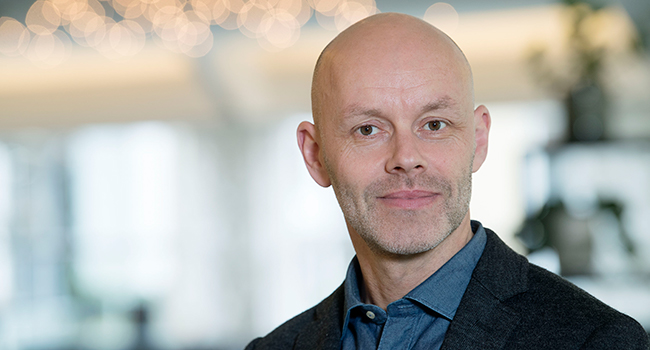- Patients today experience a healthcare system that examines and treats each individual disease separately and does not focus on the whole patient. It’s a big problem for the many patients who have multiple diseases at the same time. There will be many more of them in the future, and this poses a major challenge for the healthcare systems globally, says Professor Søren Paaske Johnsen from the Department of Clinical Medicine at the Faculty of Medicine, Aalborg University (AAU).
Together with Professor Gregory Lip from the Faculty of Medicine, AAU and the University of Liverpool, he is leading a new large European research project that intends to find solutions to this problem. The project is called AFFIRMO and carried out by a multidisciplinary consortium of researchers and clinicians across Europe representing extensive experience within clinical research, epidemiology, data science, biostatistics, pharmacology, economics, psychology and social sciences.
- We understand and treat patients better if we look at them from a holistic perspective and see them as human beings with coherent systems of diseases. Otherwise, we simply miss the big picture. But it’s a difficult challenge to get the entire healthcare system to organise treatments that match this perspective. It means that we must move away from a 'one size fits all' approach and instead focus on the patient's individual situation and actively involve the patient in decisions about the organisation of the care. That is the great challenge we will address with this project.
A problem of epidemic size
- We often see quite complex disease courses. Because patients have multiple diseases at the same time, they are given several different treatments, including often multiple types of medications. They may also have a combination of both physical and mental illness. They are more fragile due to their advanced age, and moreover, their life circumstances can further complicate their situation. Such complex disease situations are difficult to handle with the way medical care is currently organised in advanced healthcare systems, says Søren Paaske Johnsen and continues:
- A group of patients who often have multiple diseases at the same time are patients with atrial fibrillation. By 2050, it is expected that there will be between 14 and 17 million patients with atrial fibrillation in Europe. So we are facing a challenge of epidemic size that we need to figure out how to deal with appropriately.
Disciplines and countries join forces
The research project is carried out jointly by a large number of partners, and many European countries each participate with their own expertise.
- At the Faculty of Medicine at Aalborg University, we have extensive experience with taking advantage of the opportunities offered by digitalisation, which can help us gather valuable knowledge about patients and use the enormous amount of data to see the big picture and make better treatment choices to serve the good of all. This is one of the things we will contribute with to the project, Søren Paaske Johnsen says.
FACTS
- The project is funded by a Horizon 2020 grant of approx. EUR 6m
- It will be carried out in the period 2021-2025
- Research institutions and organisations from Denmark, England, Italy, Sweden, Belgium, Spain, Bulgaria, Romania and Serbia participate in the project
CONTACT
- Professor Søren Paaske Johnsen, Department of Clinical Medicine, Faculty of Medicine, AAU, spj@dcm.aau.dk, telephone: +4529470295

